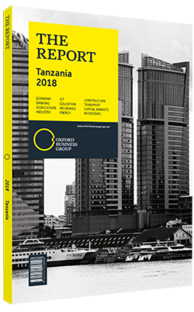Tanzania aims to improve ease of doing business metrics
Improving Tanzania’s business environment is central to the government’s drive to encourage investment. Ranking in the top 100 of the World Bank’s “Doing Business” report was a target of the first five-year development plan that ran to 2016. However, by the time the second plan covering 2016-21 was formulated in 2016, Tanzania had fallen nine places to 139th out of 189.
Recent Rankings
In the “Doing Business 2017” report, Tanzania climbed 12 places from its 2016 level to rank 132nd out of 190 countries. However, in the “Doing Business 2018” report its ranking slipped again to 137th out of 190 countries. Its score of 54.04 placed it above the sub-Saharan average of 50.43, with the regional group having the lowest average overall. Tanzania was on par with other emerging economies in the region, such as Mozambique (54.00) and Côte d’Ivoire (53.71).
Tanzania ranked 42nd globally in getting credit – higher than its 44th place in 2017 and 152nd place in 2016 – an improvement attributed to the recent licensing of credit bureaus. The country ranked 34th in contract enforcement in 2018, above both Uganda and Kenya, and well above its 2017 rank of 59th. Tanzania also outperformed its regional rivals in ease of obtaining affordable electricity, where it ranked 82nd globally, up five places from the year before.
Areas that would benefit from regulatory overhauls include paying taxes (154th), registering property (142nd), protecting minority investors (129th), trading across borders (182nd) and dealing with construction permits (156th). Importantly, starting a business, with a ranking of 162nd in 2018, remains problematic. “Companies looking to invest in Tanzania require on-the-ground assistance with business registration, certification documents and intellectual property rights,” Deogratius Kilawe, managing director at Excel Management and Outsourcing Company, told OBG.
Reform Agenda
The private sector development programme coordinator in the Prime Minister’s Office, Barney Laseko, told local media in October 2016 that the government plans to make changes in four critical areas – business licensing, land reforms, registration of businesses and the registration of personnel.
To this end, the current development plan includes a range of planned interventions aimed at boosting Tanzania’s attractiveness as a destination for entrepreneurs. Establishing the Tanzania Investment Centre (TIC) as a fully functioning one-stop shop is a key proposal in the second five-year development plan. Established in 1997, the TIC has already brought a number of ministries and government agencies under one roof.
Creating a simple business registration system and an online business portal is another important proposal. This will involve building on the platform already established by the Business Registrations and Licensing Agency, which provides online functionality in areas such as name clearance and registration. According to current legal advice, registration of a business in Tanzania takes between seven and 14 days, and the services of a consultant are usually required for what is frequently a complicated process.
Legislative Change
Enacting a new law to give investors greater protection also forms part of the government’s strategy. The Investment Act of 1997 is generally regarded as a robust framework for both domestic and foreign investment, but the OECD has identified vulnerabilities that might be addressed in any legal overhaul, most notably in land tenure and intellectual property rights protection.
Other initiatives include bids to overhaul the tax system; introduce a frictionless cross-border trading system through initiatives such as the Single Customs Territory and the Simplified Trade Regime; increase the efficiency of commercial courts; and boost electricity supply through local infrastructure development and connections with the national grids of neighbouring Zambia and Kenya. It is a broad strategy, involving many arms of government, but one which is essential to the creation of a more competitive business environment.
You have reached the limit of premium articles you can view for free.
Choose from the options below to purchase print or digital editions of our Reports. You can also purchase a website subscription giving you unlimited access to all of our Reports online for 12 months.
If you have already purchased this Report or have a website subscription, please login to continue.

